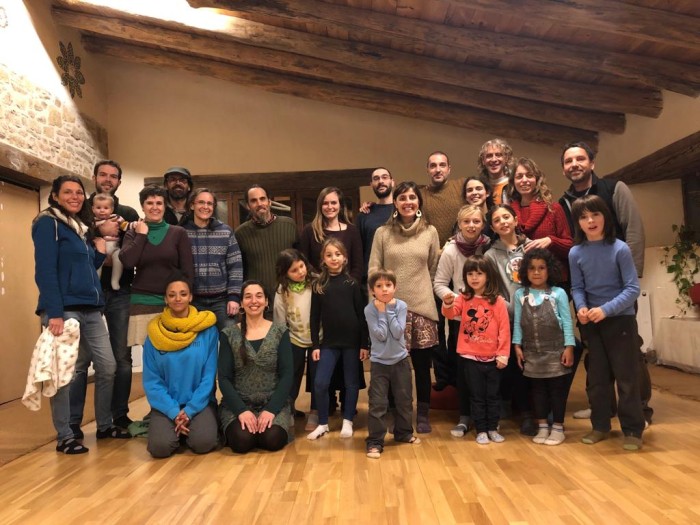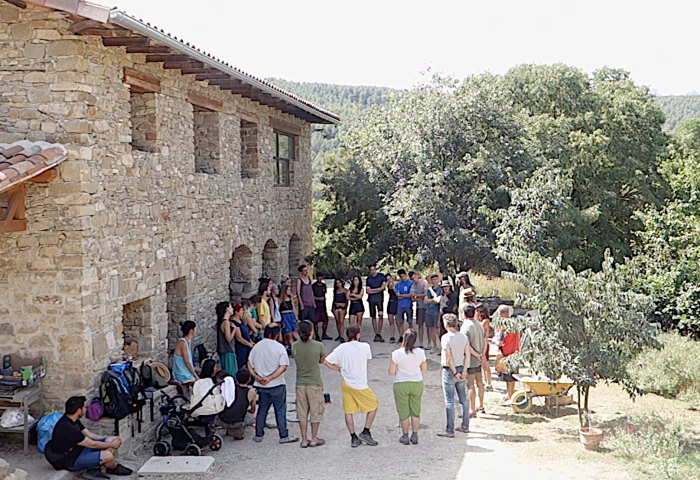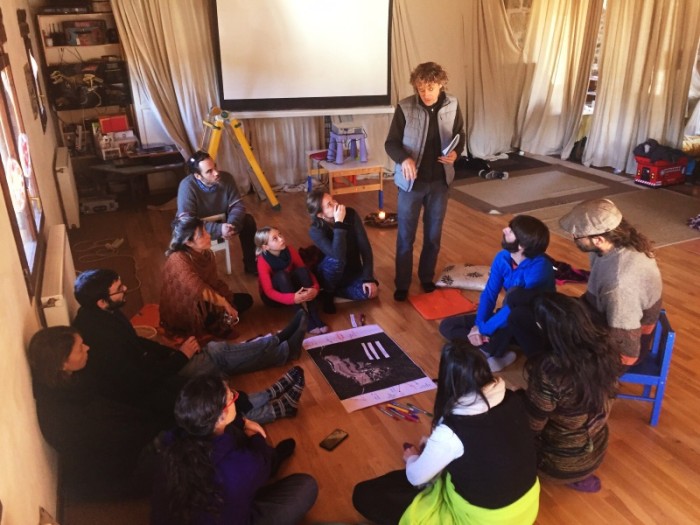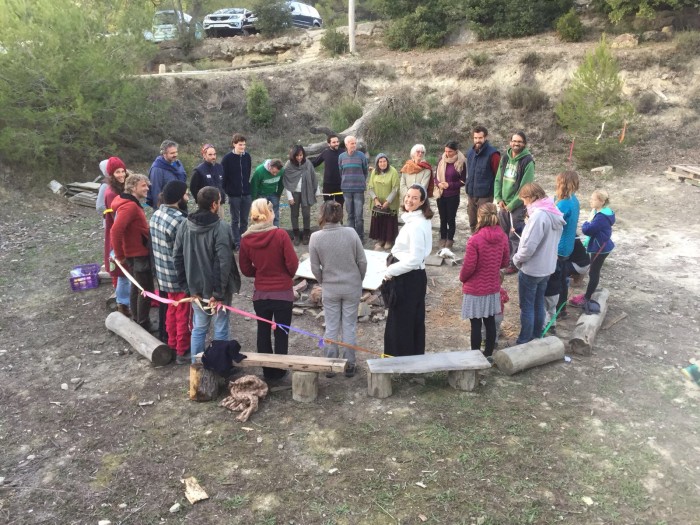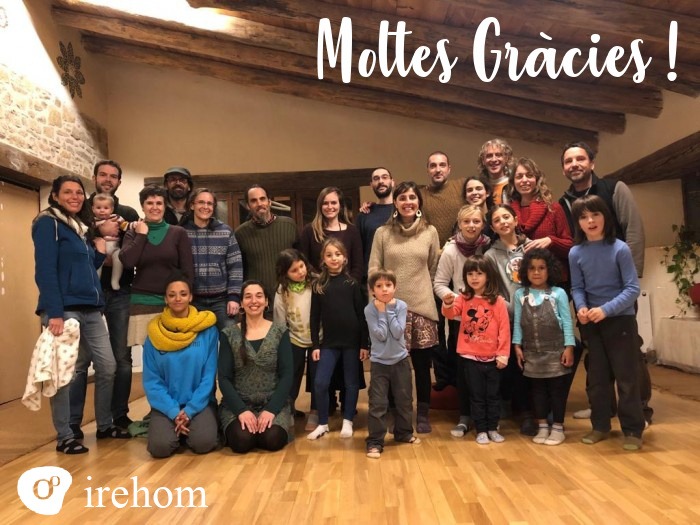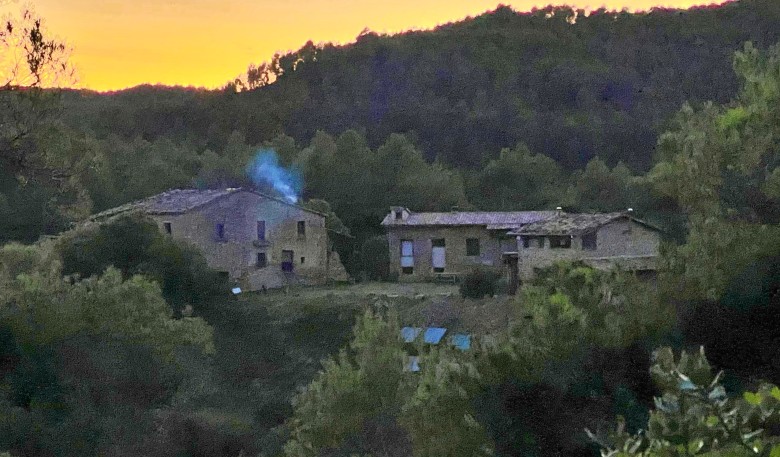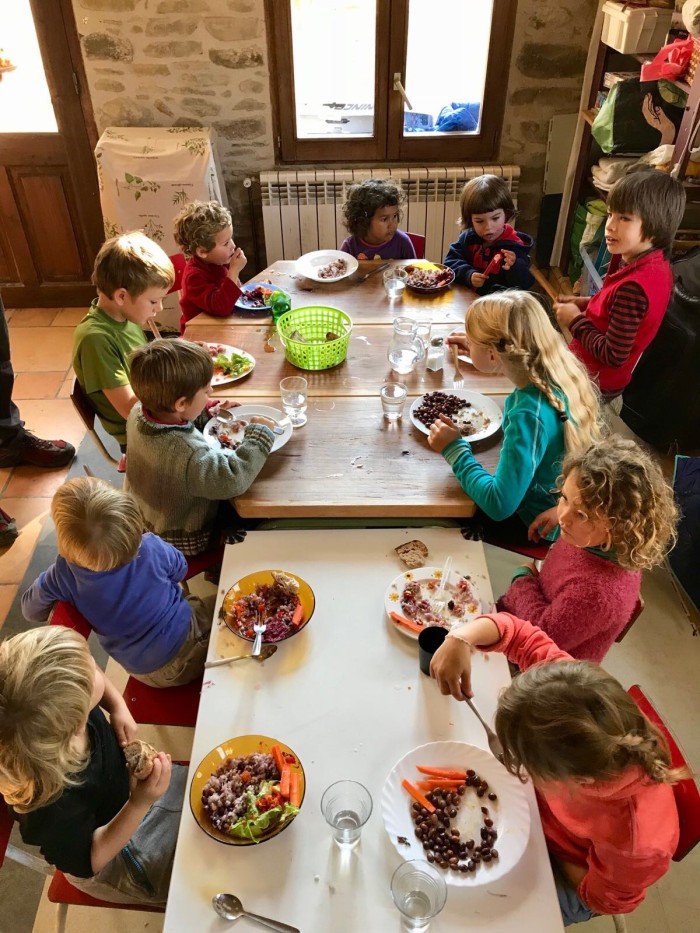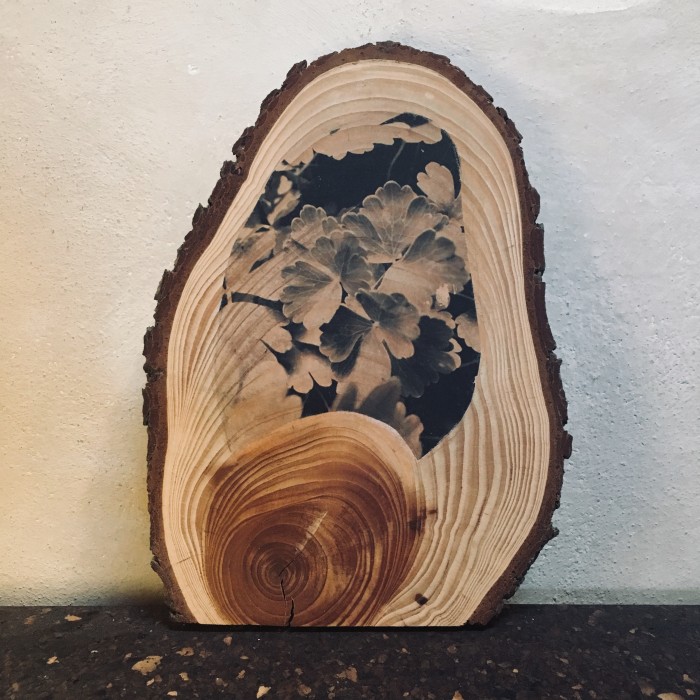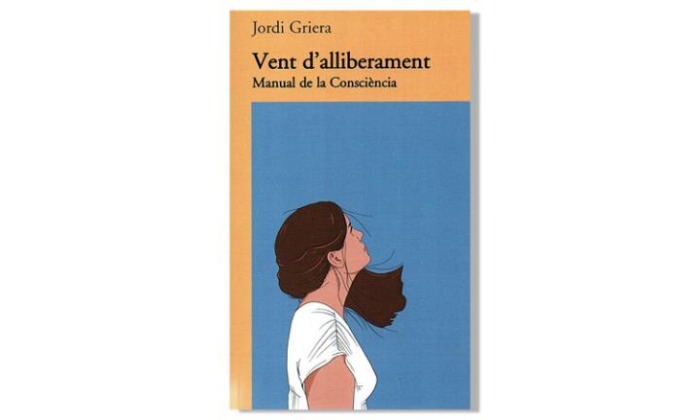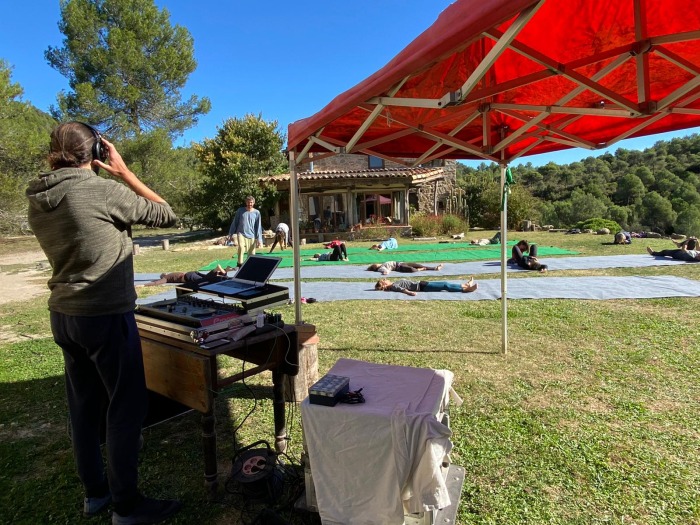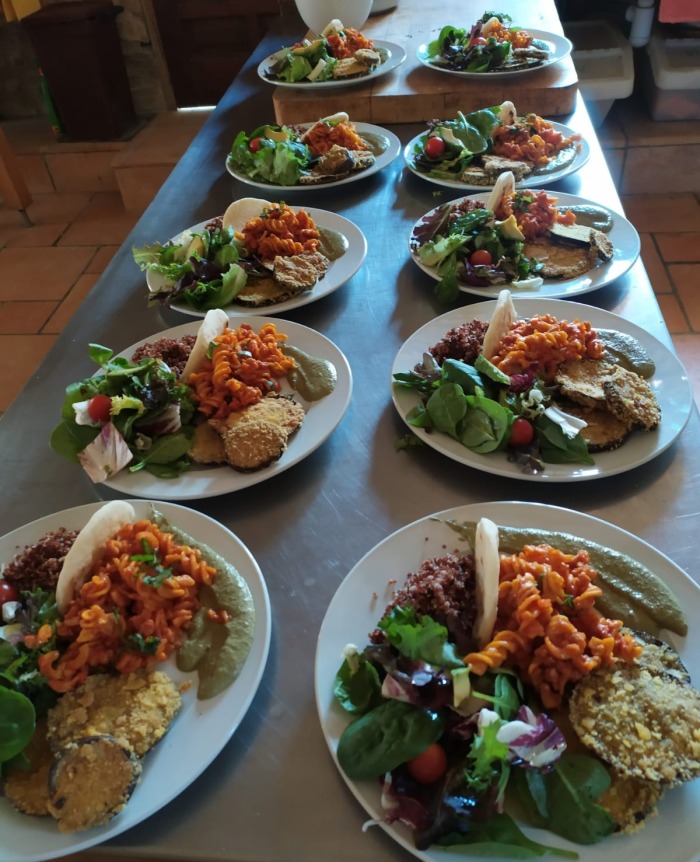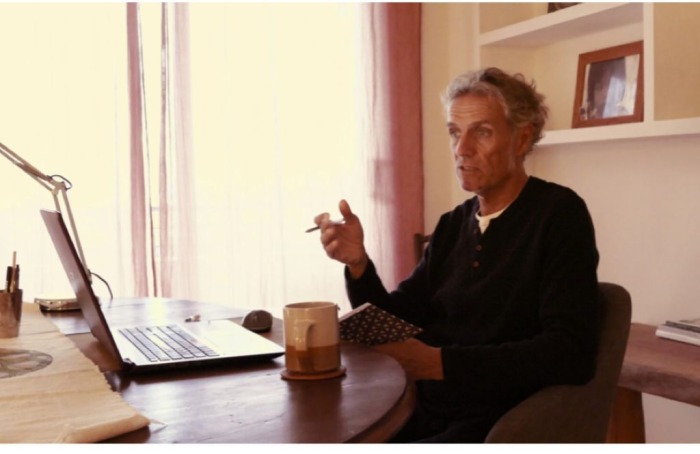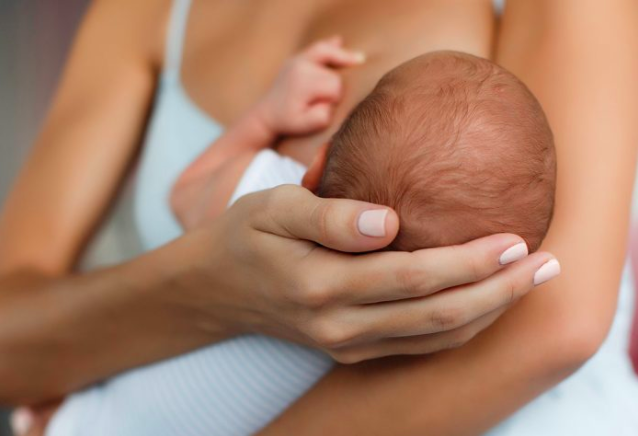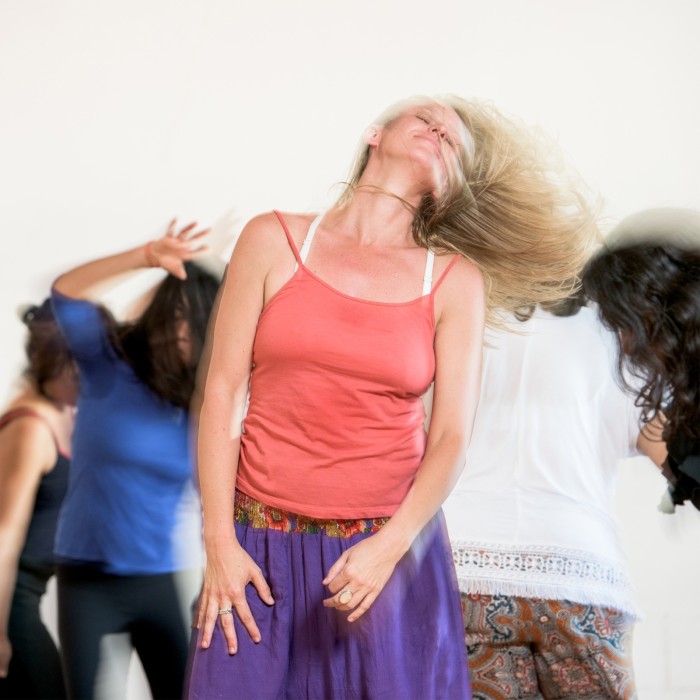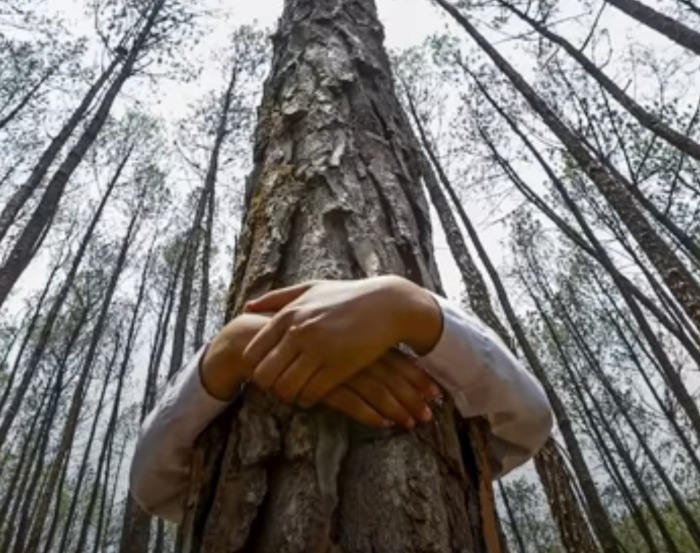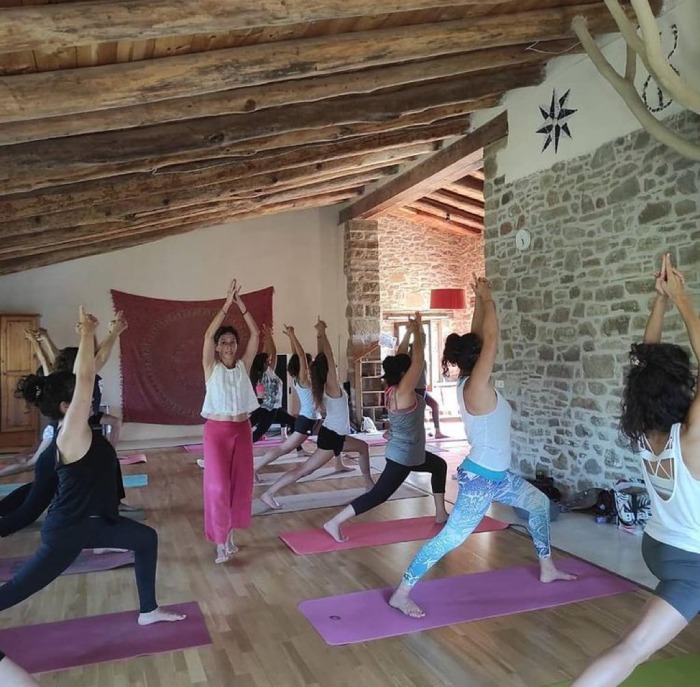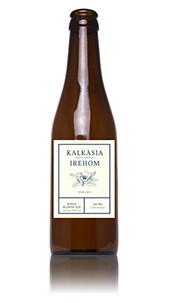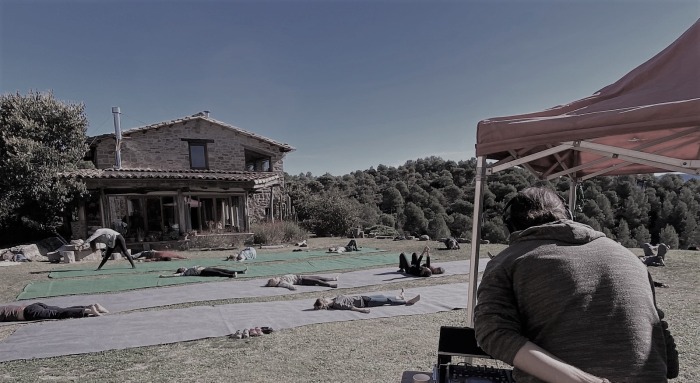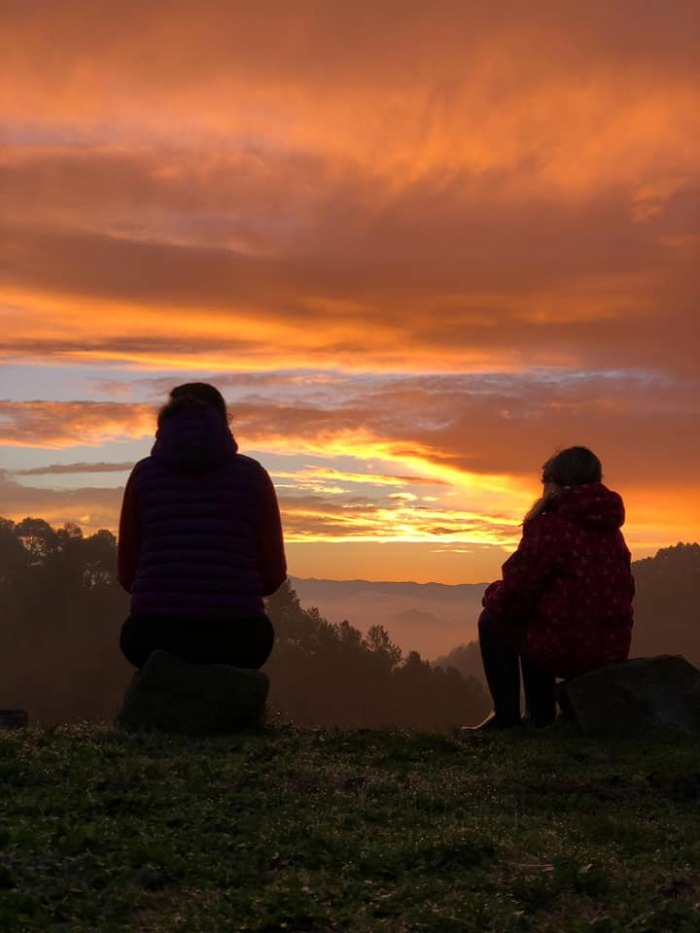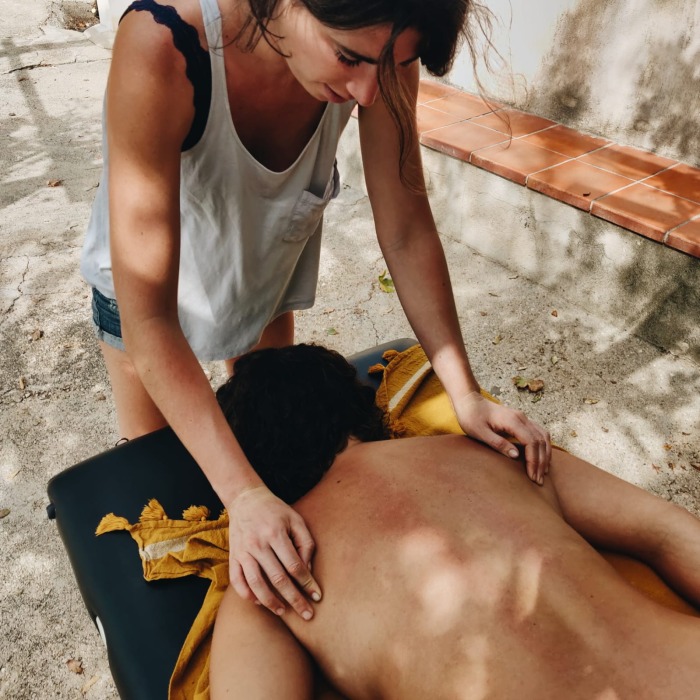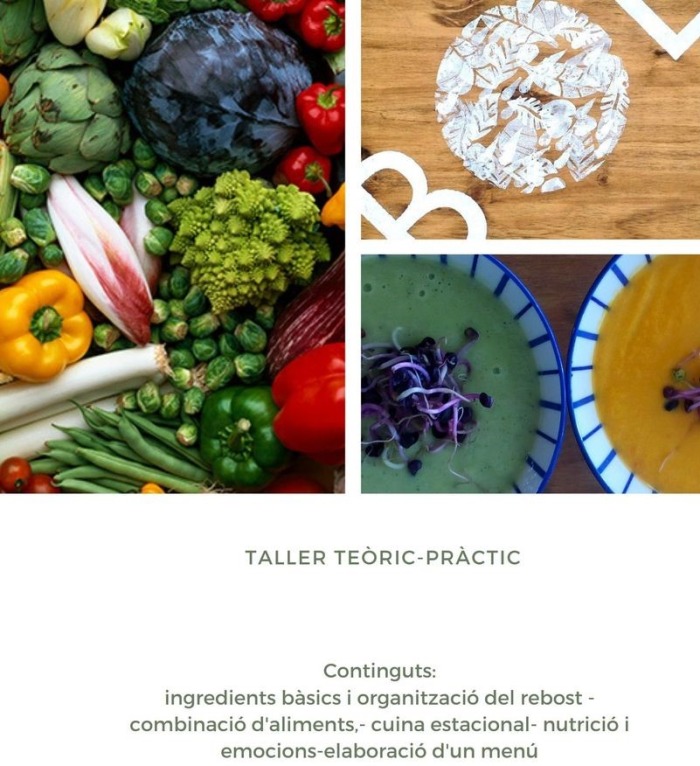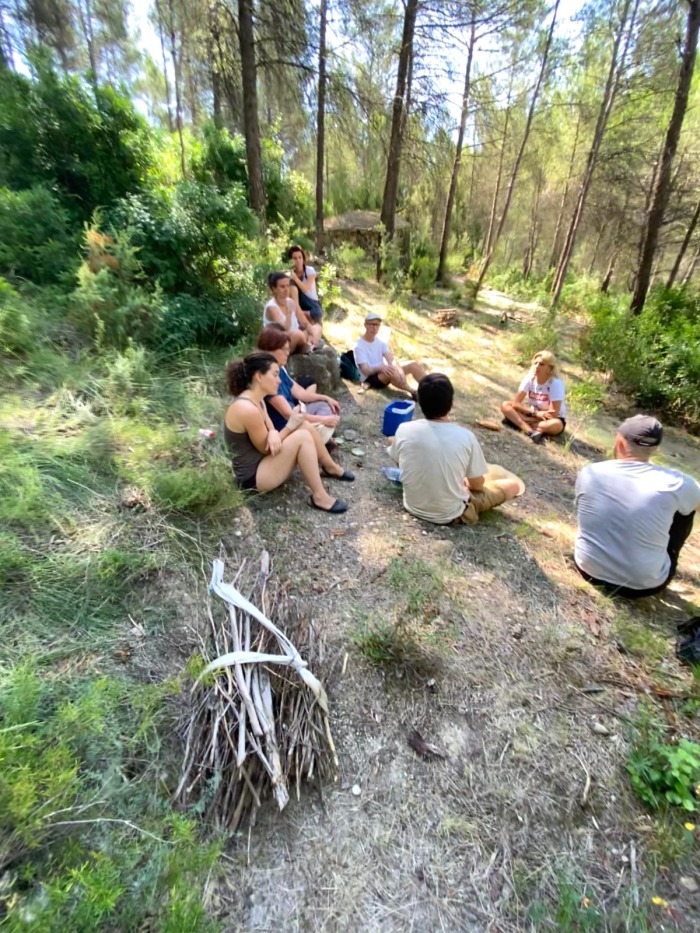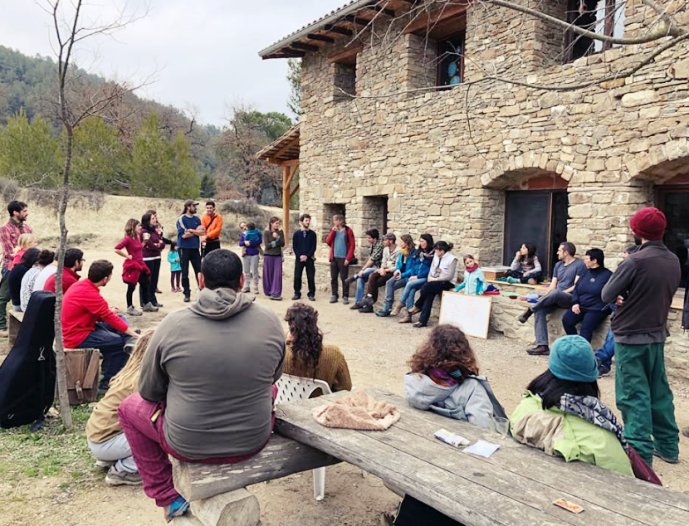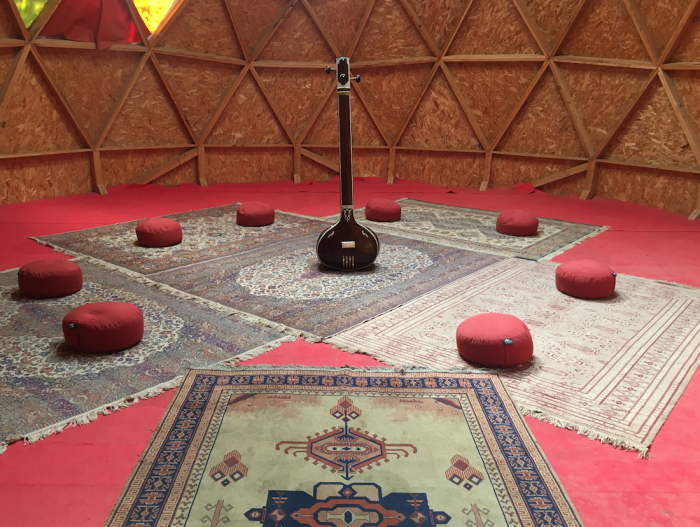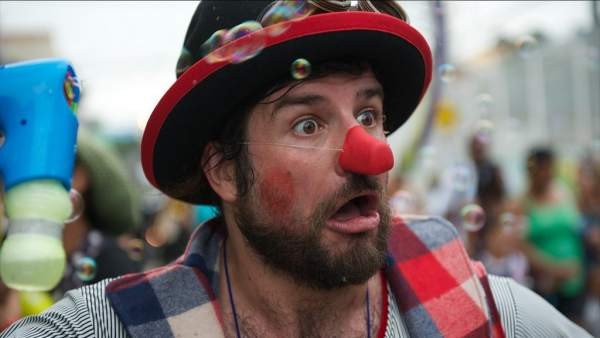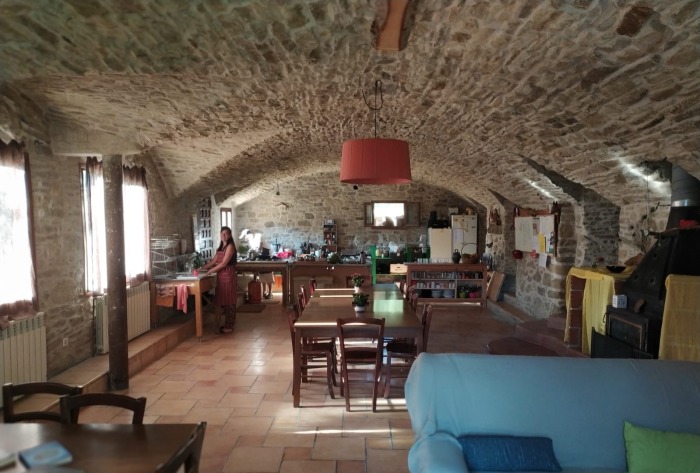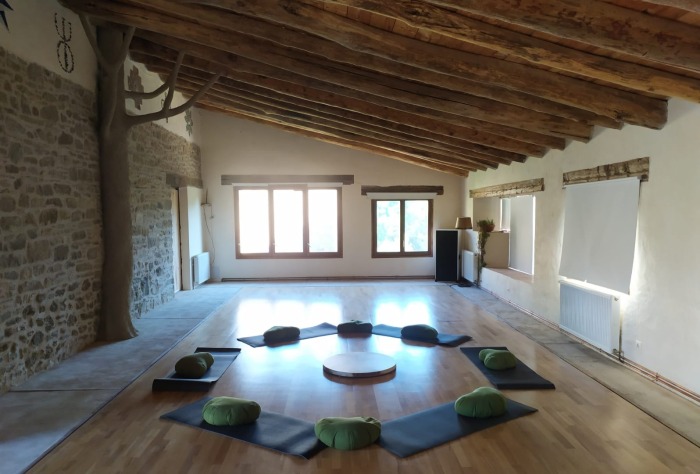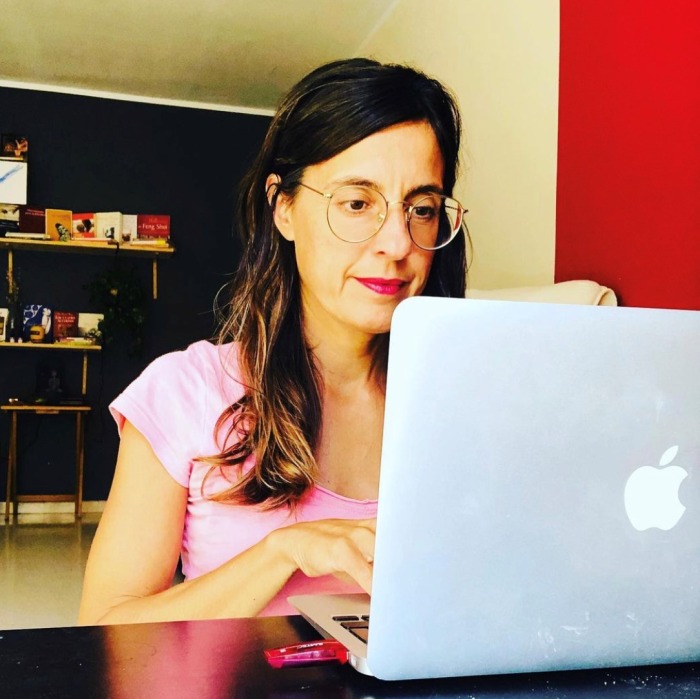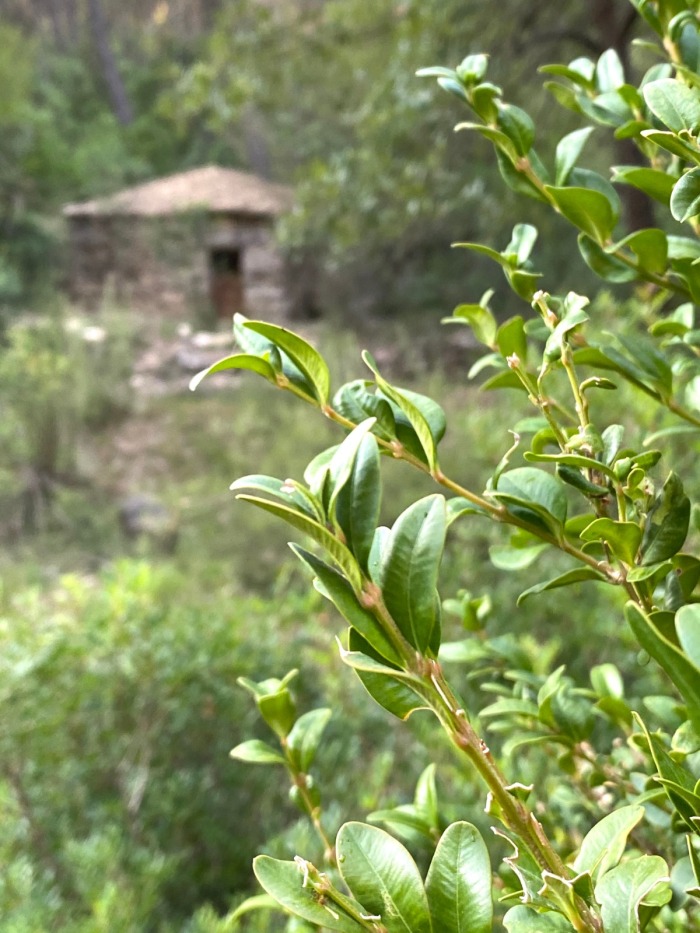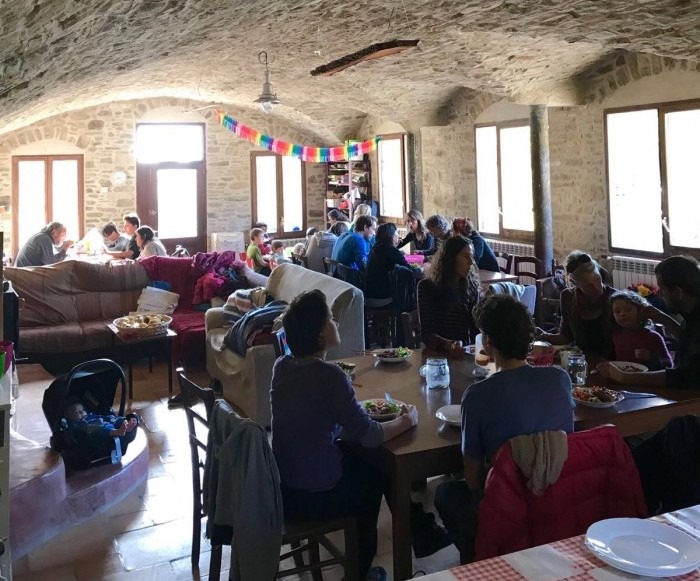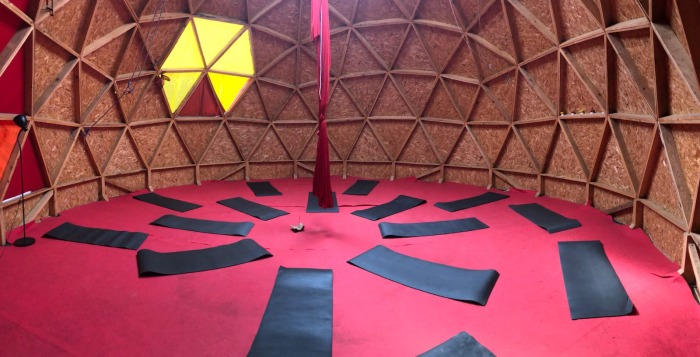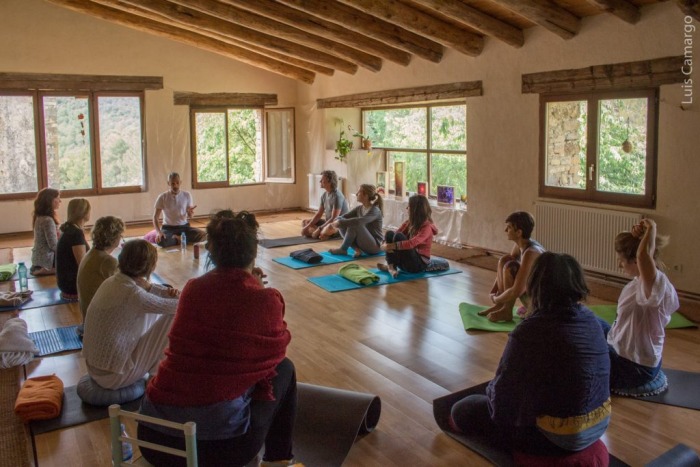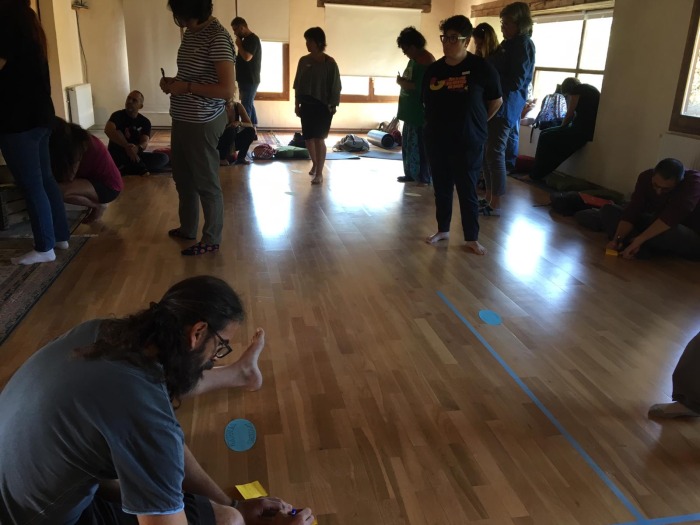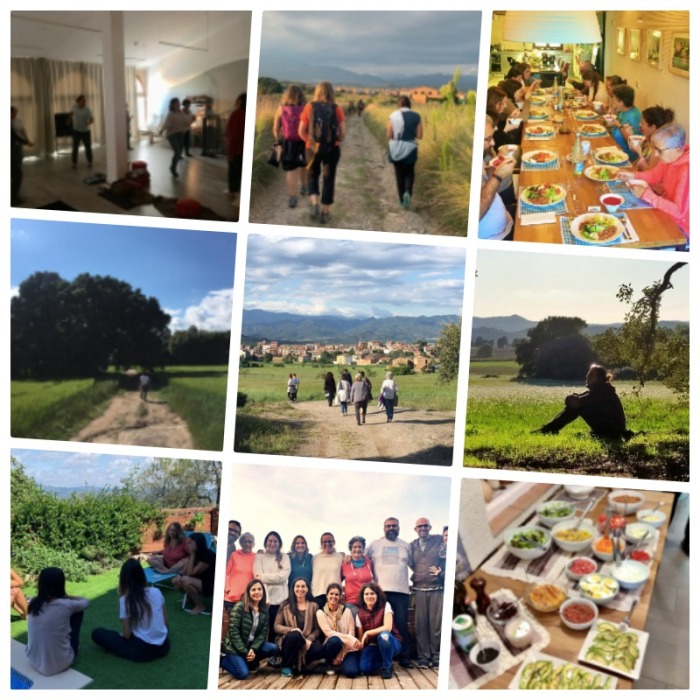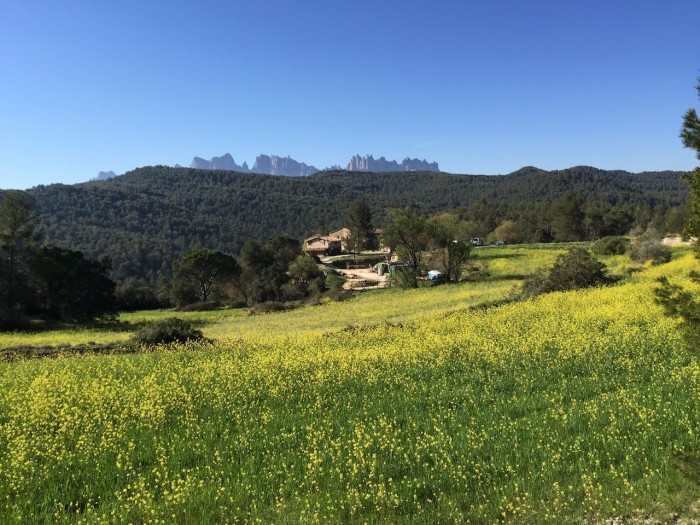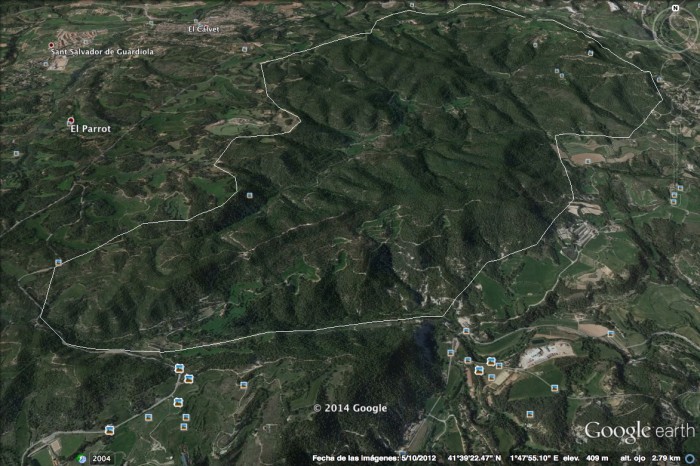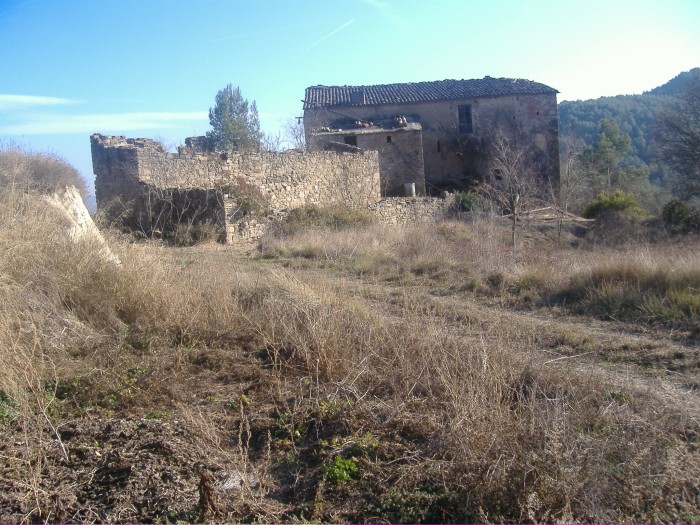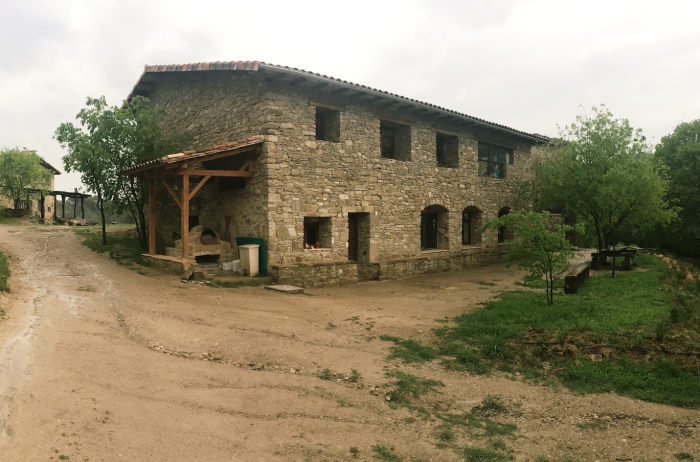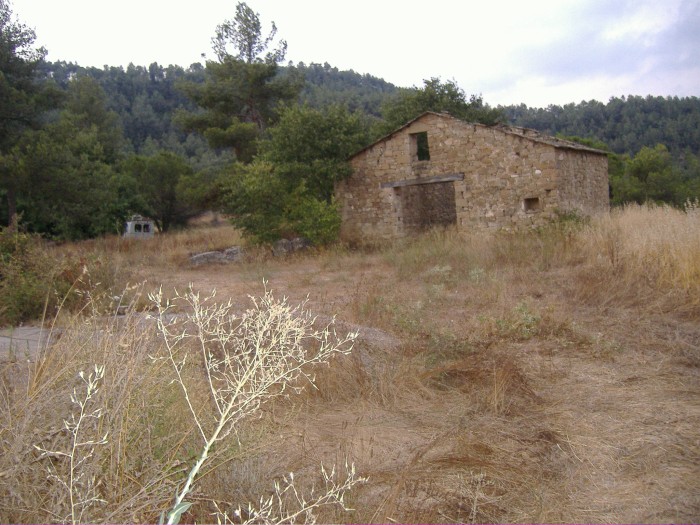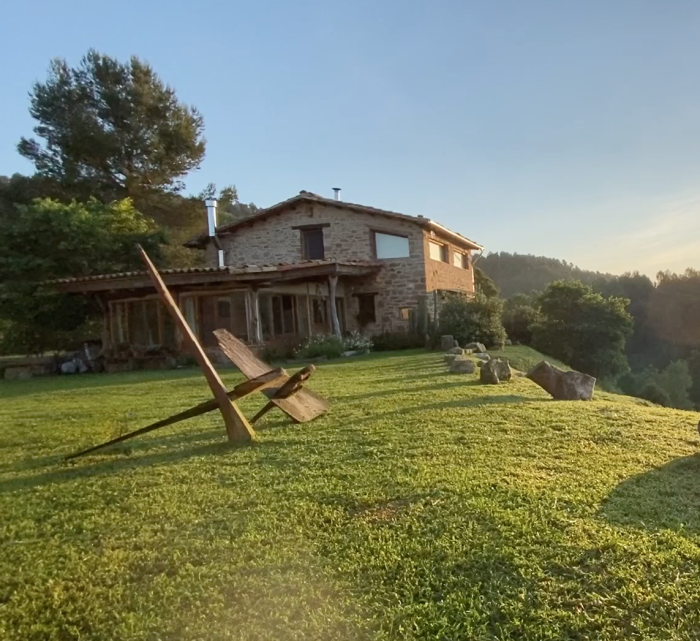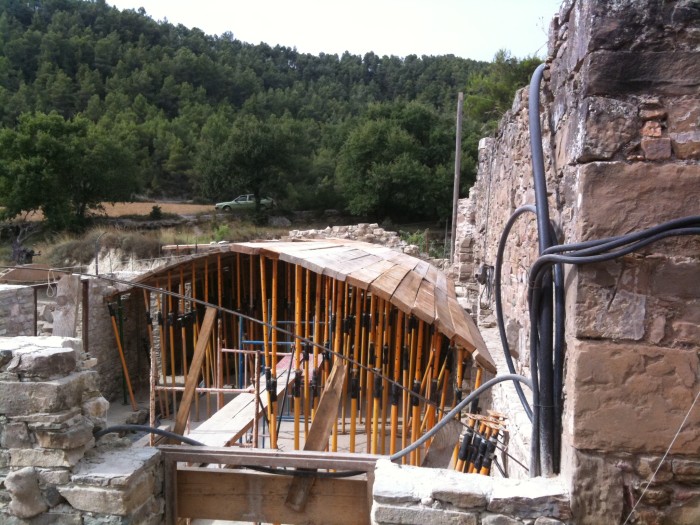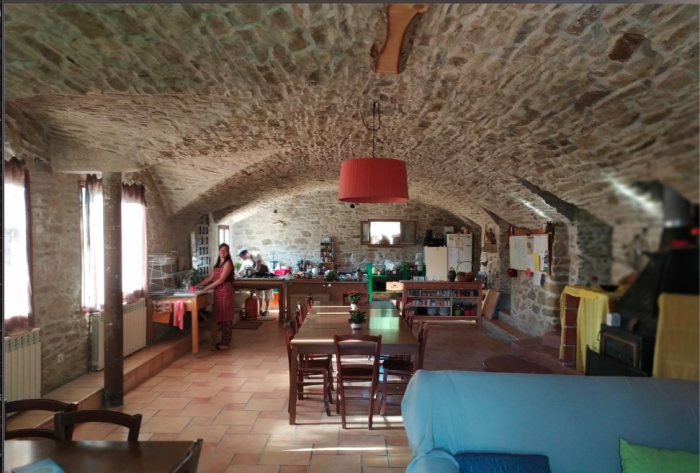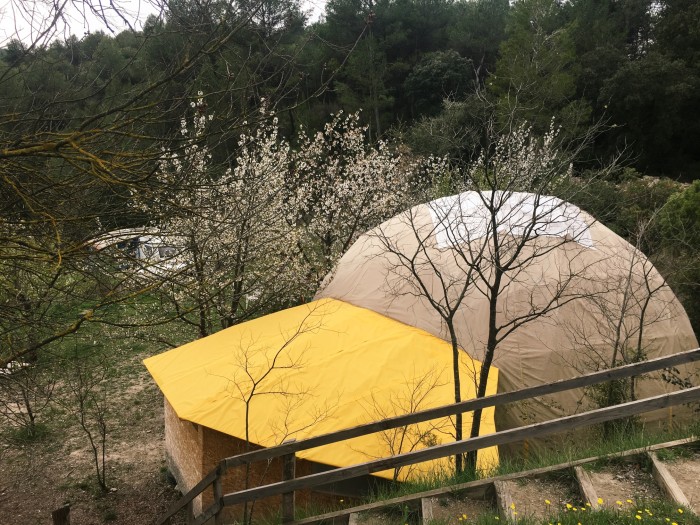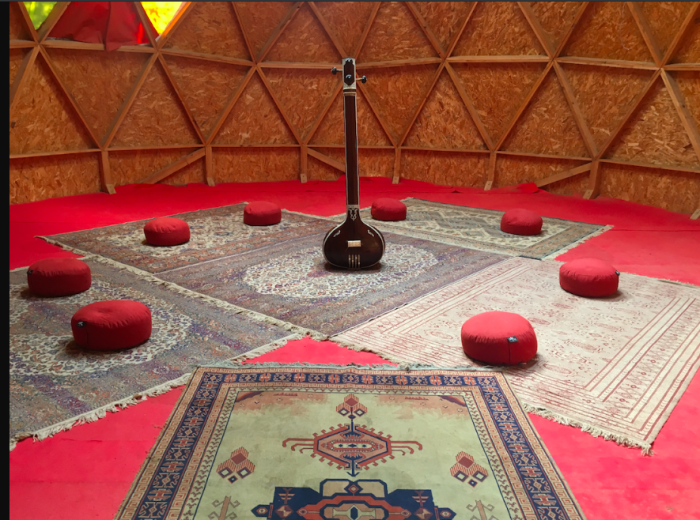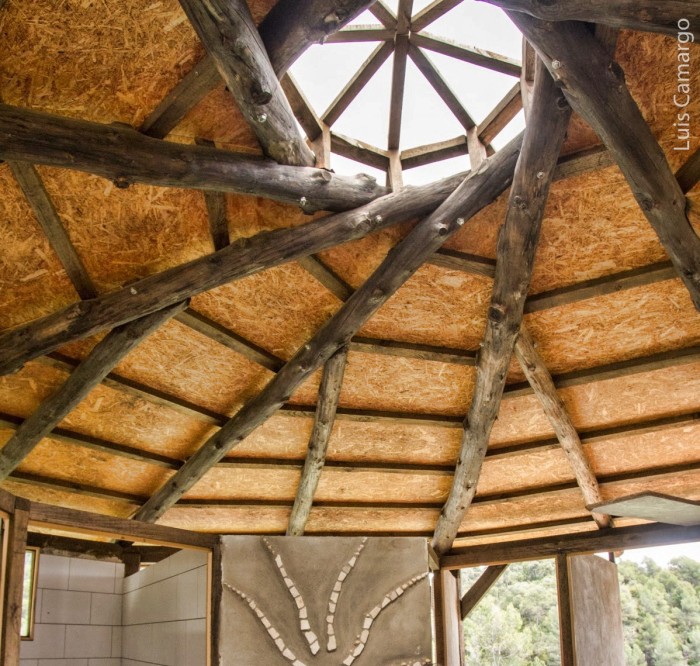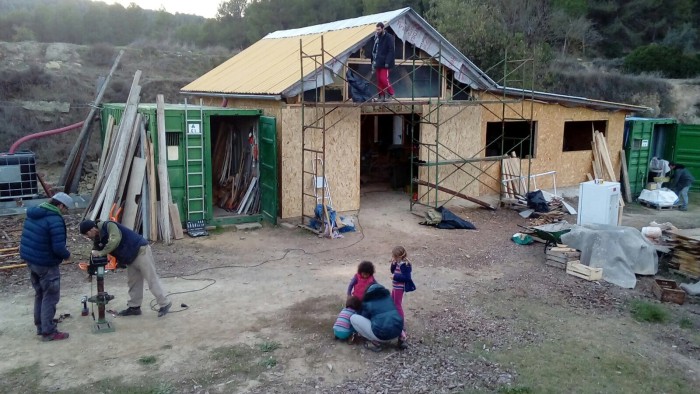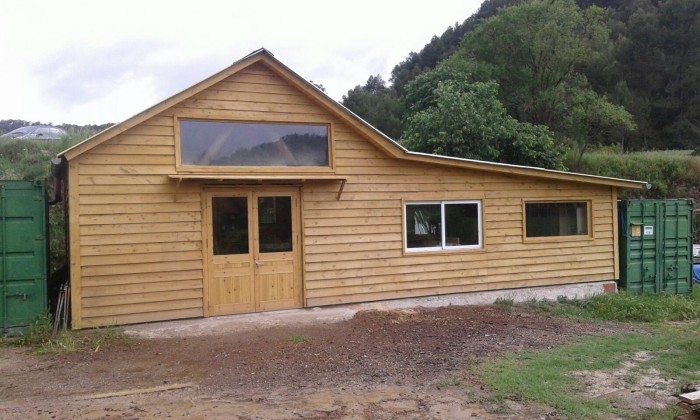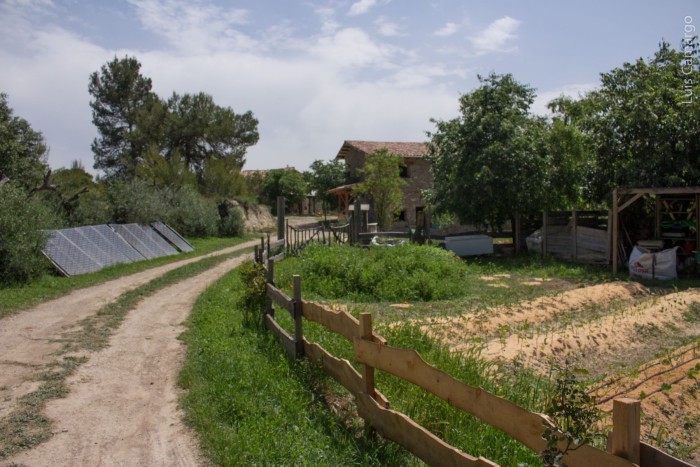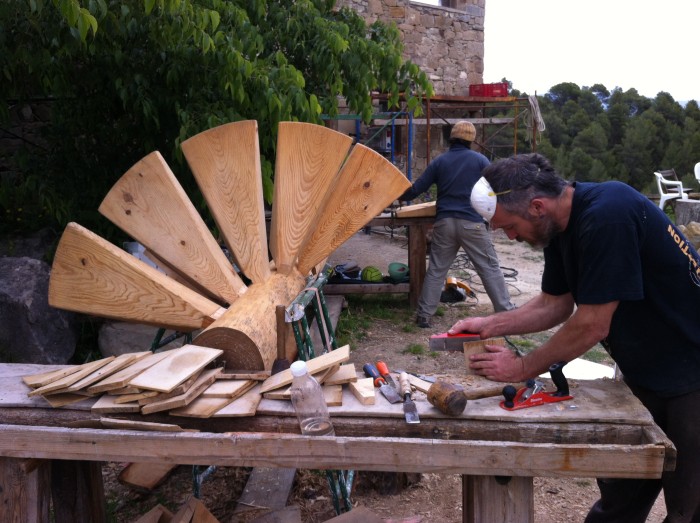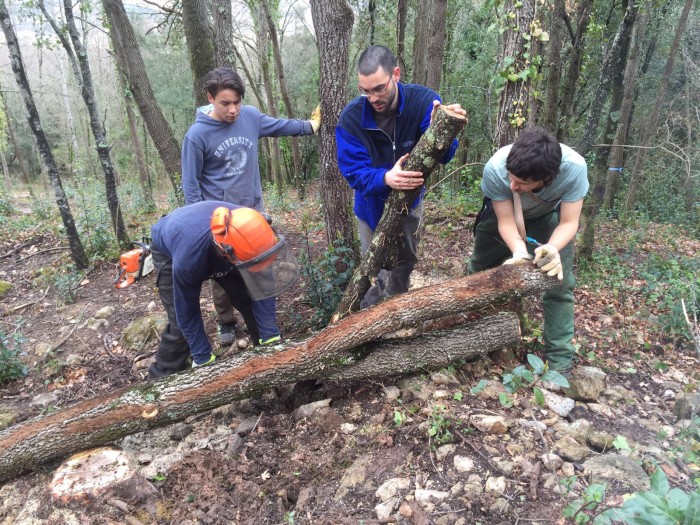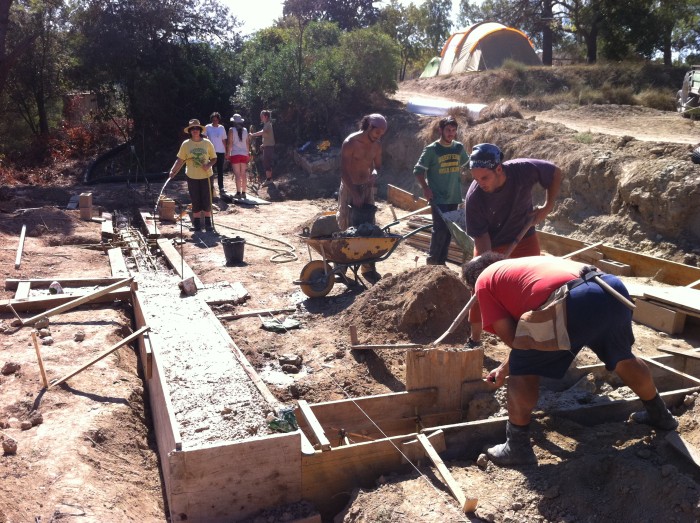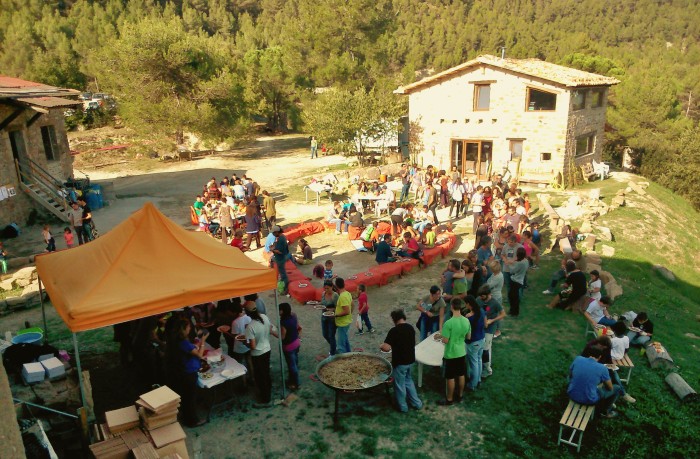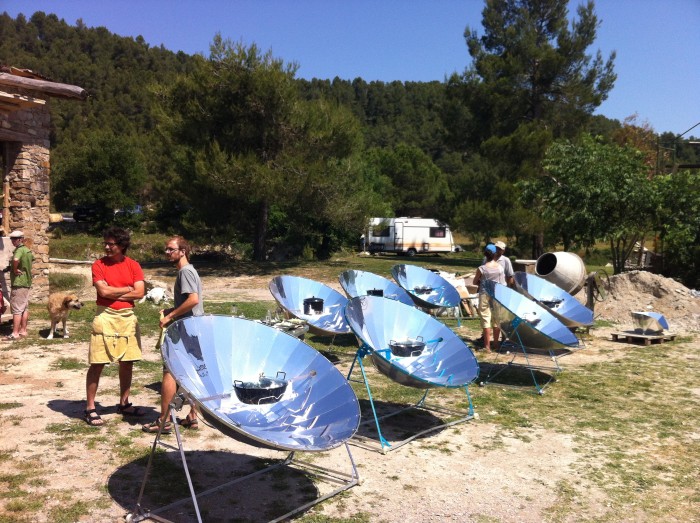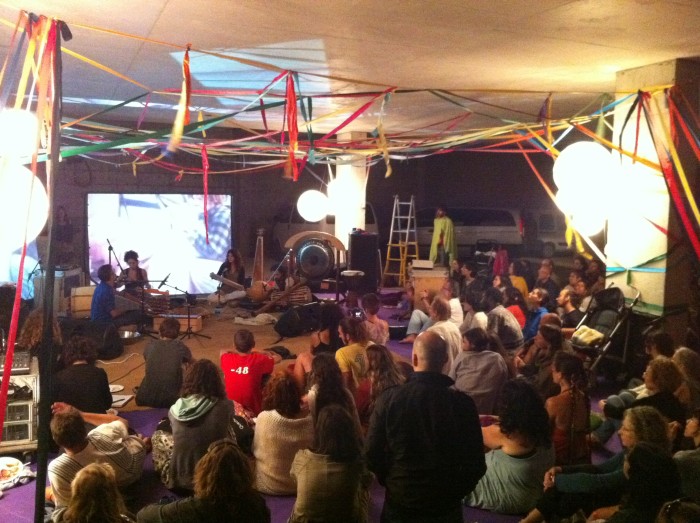# What do we want to achieve? How can you help us?
We need to make a Special Urban Plan that will help us legalize the facilities that Irehom [https://irehom.org/] has been self-constructing in the uninhabited Can Casassaies estate for 11 years. Thanks to this Plan, we will be able to change the land uses that will allow us to be able to continue developing the spaces, to reach the objectives of the project and to facilitate the overnight stay of our users, volunteers and workers.
The different facilities have served to have a series of infrastructures (built according to criteria of bioconstruction or sustainability) that have allowed us to carry out hundreds of diverse activities (educational, leisure, cultural, agricultural, forestry, and more) and keep networking with people and groups.
The cost of the construction of these facilities has been covered by personal financial contributions and thousands of hours of volunteer work, by many many people who have participated, during these 11 years, in the more than 80 work camps that we have organized.
We have been able to show that a small group of people, accompanied by their network, can bring to life an abandoned space. Today, thanks to Irehom, the estate of "Can Casassaies" is a space to share, learn, repopulate and care for a natural place in our territory.
The infrastructures that we have to legalize at the moment are:
• A dining room-kitchen (la Volta) of about 80m2
• Two multipurpose spaces (Les Tines room 80m2 and the geodesic dome 50m2)
• A couple of houses for the inhabitants of the estate (La Pallissa and Casa de Palla)
• A carpentry workshop
• An external dry toilet building.
This Special Plan is very costly financially and is a threat to the viability and continuity of Irehom.
The current legislation offers us the camping formula to legalize the project. We take it because it gives us opportunities, taking into account the many constraints when generating projects in rural and rustic land, to open up new possibilities and needs of our time, beyond farms, intensive agriculture and rural tourism. A campsite that will allow us to improve overnight stays on the farm and to be able to stay in suitable facilities (bungalows, caravans, tents) to users of the different activities that we develop in the farmhouse of Can Casassaies, headquarters of the project.
One of the current problems of our society is the depopulation of the rural world and the management of rural and agricultural areas. Urban planning laws in these areas are very limiting, in particular, to protect them from the uncontrolled urbanization that existed decades ago. This legislation, which was done with the best intentions of protecting natural sites, paradoxically, is now a threat to the survival of new projects that seek other possibilities and opportunities to give these spaces and that are certainly part of the future solutions for better managing our environment.
Many of these projects are precisely at the forefront of studying how to deal with new paradigms, and many of them, in which we humbly include ourselves, want to provide sustainable and holistic answers to address these changes.
We need spaces for learning and experimentation like the ones we are generating and creating at Irehom. We join so many other people who feel the need for change and, to make it happen, there is a tool called the Special Urban Plan. This Plan is very complicated because there are many departments and technicians to coordinate and approve.
From Irehom, we have worked on a Strategic Plan for sustainable development for the valley of Artigues, and it is presented and validated by Castellgalí Council. The Plan lays the foundations, strategies and objectives for repopulating the valley and generating a sustainable economy. The principal premise is: “If there are no projects in the Valley, it will be difficult for people to live there. If people are not living there, it will be difficult to keep custody ”.
Irehom has been leading a transformation in this Valley since 2009. This transformation is welcome by its neighbours and the corresponding public administrations.
Join our campaign. Together we will succeed. Be part of #tenimunplaespecial!
Main features and goals of the crowdfunding campaign
Mutual and full respect, the practice of presence and the development of consciousness, unlearning and relearning, experimenting and testing… are some of the values that inspire us to build this path.
Respect for nature as a whole, energy sustainability, the reconstruction of the rural world, food sovereignty, strengthening communities, respect for the natural rhythm of things, inner listening and self-knowledge… are some of the projects we have in hand.
Some of the projects we want to continue promoting:
If we obtain more resources in this crowdfunding we will allocate them primarily to prevent the degradation of one of the old constructions of the estate, in particular the big house, which urgently needs a new roof.
On the other hand, we will continue to promote our goals:
To continue to be a holistic research institute, space where to host and promote training, experimentation, experiential workshops, culture, agriculture and organic livestock.
Continue to manage our territory facilitating biodiversity (we are a wildlife refuge), sustainable forest management (restoring and caring for our forests), improve rainwater harvesting (with micro dams in creeks, key lines, bases ...) and the fertilization of impoverished soils (with grazing and regenerative methodologies) generating respectful economic opportunities with added value .
Encourage different strategies included in our "Vall d’Artigues Development Plan", so that people can repopulate in a dignified way these abandoned rural areas without projects, to care for them, manage them and regenerate them.
Help to facilitate the way in legal aspects on how we can regenerate activity in the rural world and its sustainable repopulation.
Strengthen and continue to study formulas where the economy is more diversified, circular and sustainable .
One more node of the network of projects and people that we hear the same call.
A space for meeting, connection and celebration of life .
Continue to encourage spaces for retreats and personal connection through nature.
Continue to demonstrate that collective management is possible if we use the right tools and methodologies such as the formation of living organizations , change and complexity management, group emotional and conflict management, assertive and non-violent communication.
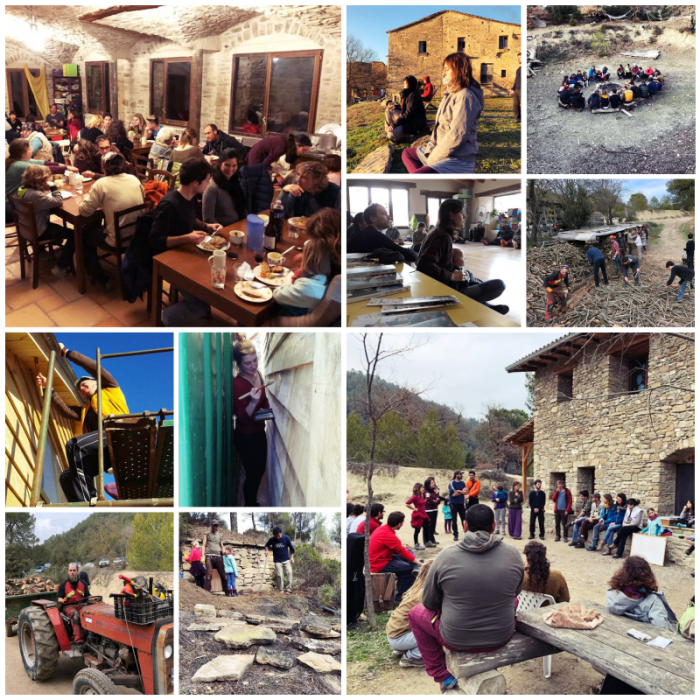
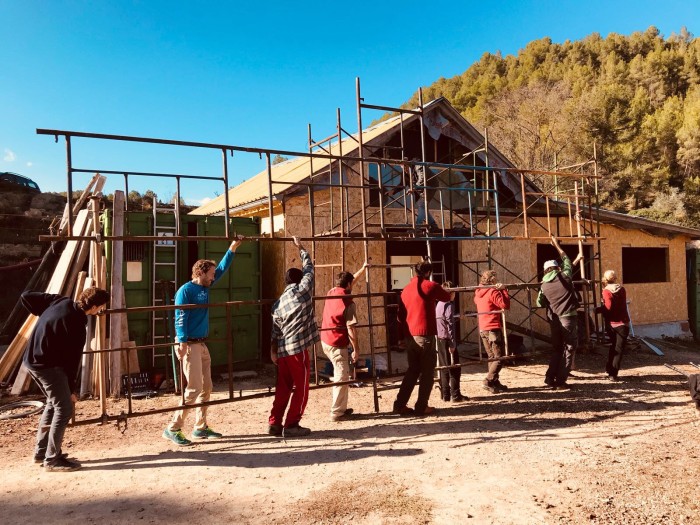
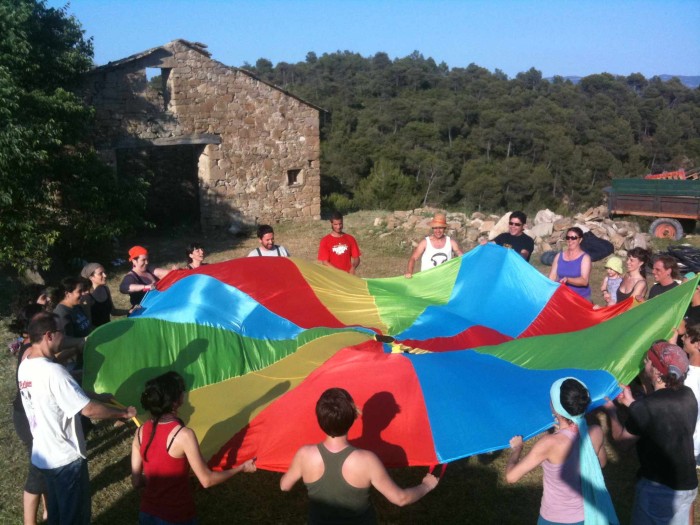
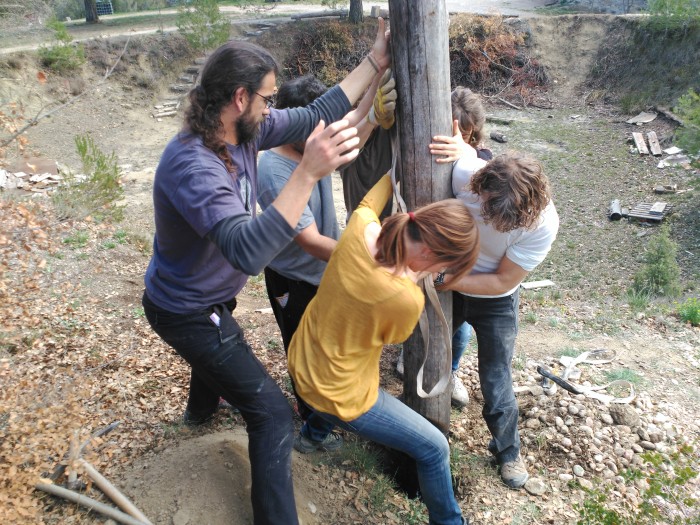
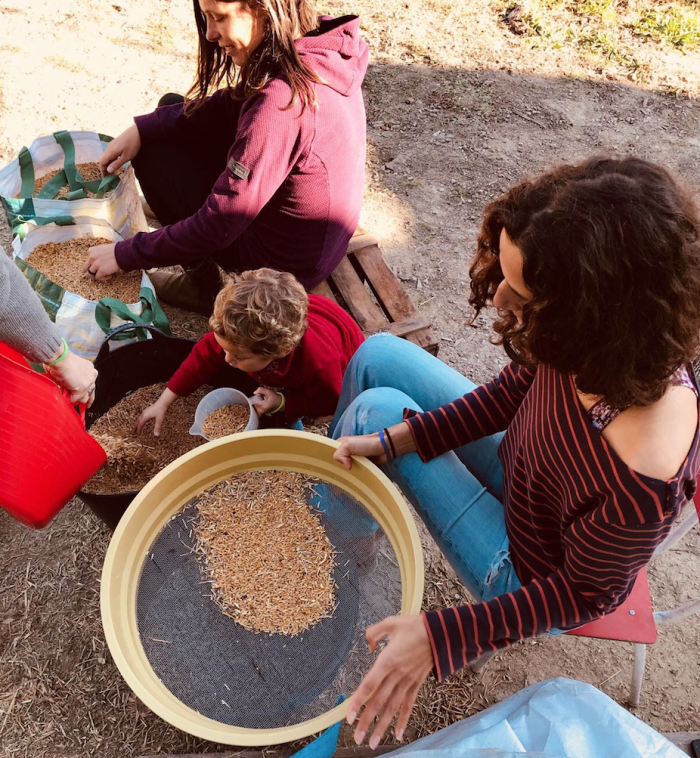
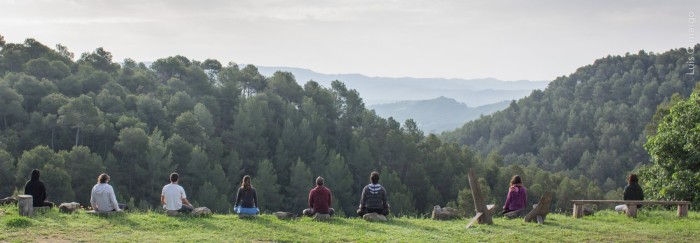
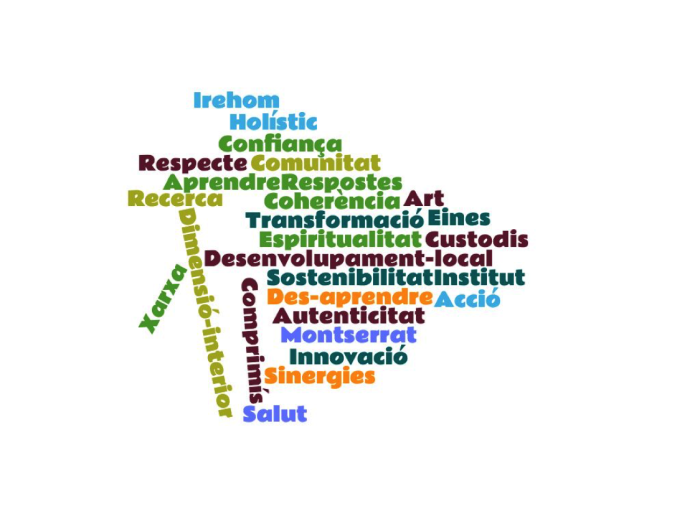
Why this is important
Irehom is a project that wants to face the challenges of the 21st century; is the Holistic Research Institute of Montserrat. And as an Institute, it studies, experiments, tests, is committed to new ways of living, more respectful of both nature and people.
In these moments of transition, we think it is the responsibility of all to provide solutions that allow us to move towards other more sustainable models of relating to nature and among people , both in the natural environment around us and within the community in which we all live.
The Irehom project is located on the Casassaies estate, at the foot of the Montserrat mountain. It is a 12th-century farmhouse, abandoned during the 20th century and which the Irehom association has been renovating since 2010.
Now, all this must be arranged in a Special Urban Plan that allows us to legalize the facilities that we have built; since during all this time we went ahead of the administration proposing an occupation of the rural environment with a respectful sight, recovering and rethinking old spaces and uses adapted to the needs of our time.
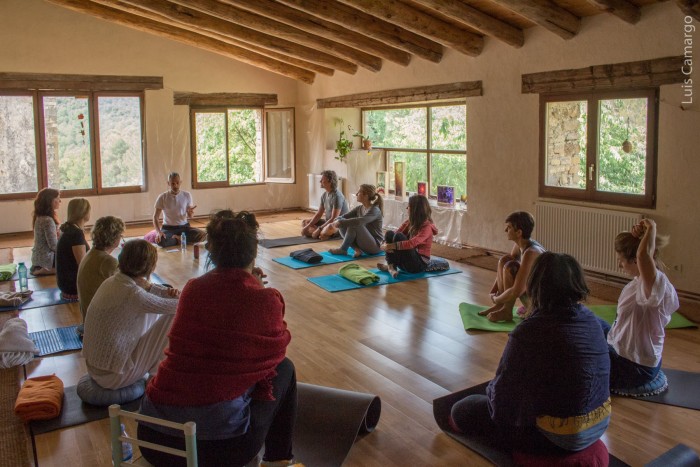
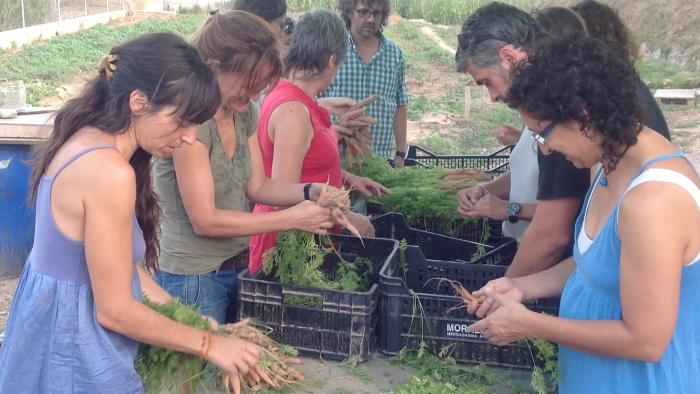
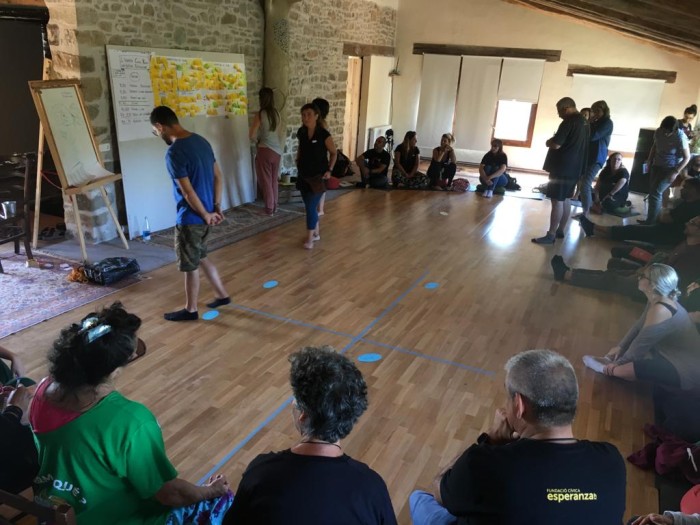
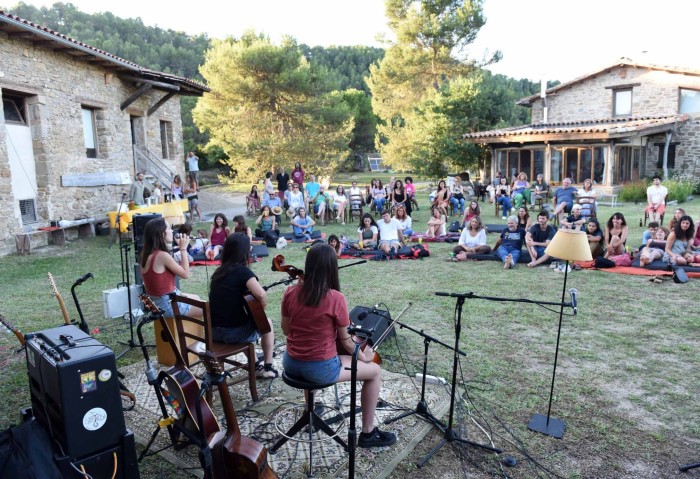
Team and experience
After 11 years, the commitment to create an inspiring project that apports to these worlds - which is at a limit - remains intact. Right now, Irehom is at a turning point, and this is why we need your input, your grain.
As a project, what have we managed to do so far?
- More than 3,500 people have visited or been part of some of our activities.
- We have done more than 80 volunteer work camps , where we have shared experiences and knowledge as we learn to empower ourselves and work as a team.
- Rehabilitated and set up a rural estate where there was no consolidated project for more than 100 years. We have self-built our buildings, services and infrastructure. Construction, water, energy, orchard, forest, agricultural place.
- We are a space of reference and inspiration for our region in areas such as bio construction, solar energy production, sustainable forest management, facilitation and tools for groups of people, ICT in the rural world, training and workshops, individual and group retreats, social cohesion and support for groups, a meeting point for groups and much more.
- Promoted an educational space for children from 3 to 6 years, for 7 years
- ARC (shared responsibility agriculture): A collective garden for families close to Manresa for 10 years
- "Inspirations”: a cycle of conferences and talks in Manresa
- We manage 115 hectares of land, on two properties in our valley. Carrying out prescribed burns as a forest management tool and controlled felling with a restorative look towards the original forest.
- Can Casasaies and Cal Pons estates are now a wildlife refuge
- We have drafted and presented to Castellgalí Council, a strategic development plan for the entire valley that has more than 500 hectares.
- We have helped to write the project promoted by the Diputació de Barcelona for the development of the Montserrat Rural Park.
- We are currently working with the ACA (Catalan Water Agency) to drive a test project to capture water through micro and natural dams to humidify riparian forests and help reverse erosion.
- We are part of a network of innovative projects, both in our region and international, with which we promote synergies among us: Treeangle Foundation, Institute of Ecotechnics, Ecoxarxa del Bages, Diputació de Barcelona, Escola Agrària de Manresa, l 'Era, Beckley Foundation, CommonLand Foundation, AlVelAl Association, Cal Cases, Mas les Vinyes, Permacultra Íbera…
We are a non-profit association with the spirit of becoming a Foundation , which we hope to formalize as soon as we have sufficient resources.
We self-manage the property, which is the headquarter of the project. All together we have dealt with, and continue to do so, the costs of purchase, construction (restored and new) and the necessary facilities (water, electricity, heating, internet) that provide service to the activities we promote in Irehom.
Our driving group is made up of a dozen people of different origins and professional disciplines and has remained mostly stable for more than ten years.
We are mainly: Anna Ferrer, Robert Llargués, Germán Peraire, Núria Puigcorbé, Natxo Tarrés, Nadina Rubí, Joan Canet, Verónica Soto, Oriol Tarragó, Joan Soler and Clara Steegmann. Always supported by our kids and very close and motivated collaborators!
Thanks to all the people and groups that have contributed and have joined in a thousand different ways. We have now a series of infrastructures and facilities that we have been building together over the years:
- 2 restored houses where live three people (a stone house and a straw house).
- A photovoltaic solar energy system that feeds the energy needed throughout the project.
- A carpenter's and cabinetmaker's workshop where a person works permanently making furniture and courses.
- We have a camping area with five caravans/bungalows.
- A 50 m² geodesic dome as a multipurpose room.
- The Les Tines building, a stone building completely restored that allows you to have a kitchen-dining room for about 40 people, a multipurpose room of 80m2 with wooden floors and a toilet with three showers.
- A sanitary building with dry toilets and showers.
- A orchard and three hectares of fodder crops (for a nearby farm of organic beef) and cereals (Kamut and Spelt) that we use to make bread in collaboration with a baker from Manresa with the organic certificate CCPAE.
- An area with 8 restored vineyard huts , redesigned and enabled to carry out therapeutic retreats in the forest.
